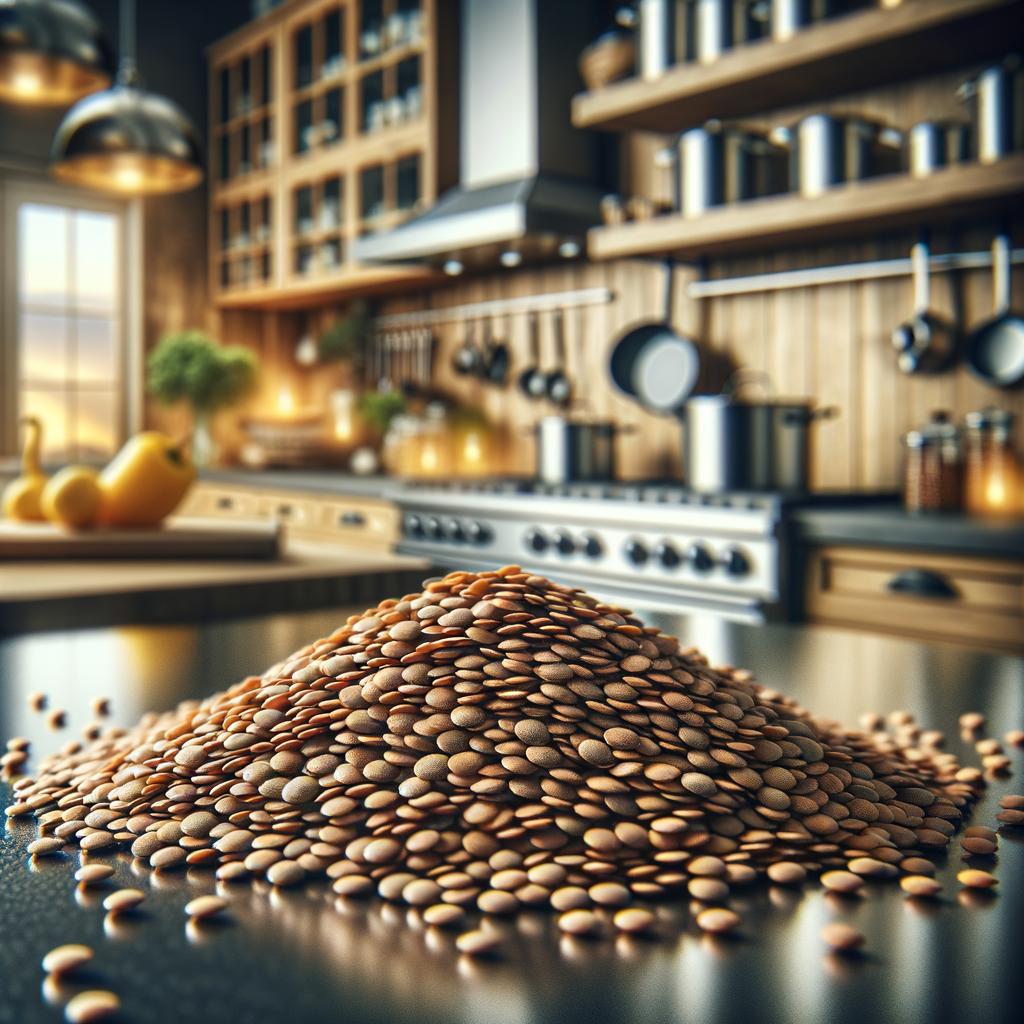Dried Lentils

Description
Dried lentils, those humble, earthy-hued pearls, are a culinary treasure chest hiding in plain sight. Their appearance is unassuming, small and disc-shaped, with colors ranging from green and brown to red, yellow, and black. The texture of these tiny gems is firm when raw, but they transform into a creamy, hearty consistency once cooked. Flavor-wise, they offer a subtle, nutty taste that can be enhanced with herbs and spices, making them a versatile ingredient in many dishes. What sets dried lentils apart from their legume cousins is their ability to retain their shape even after cooking, and their short cooking time - they do not require pre-soaking like other legumes.
Primary Uses
Lentils have been used as a staple food for centuries, gracing the tables of many cultures across the globe. They are a key component in Indian dal, a flavorful and comforting dish, and in French cuisine, they are often served as a side dish, cooked with garlic and herbs. Middle Eastern cuisines use lentils in soups and salads, while Italians incorporate them in pasta dishes. Beyond the culinary world, lentils have been used in traditional medicine for their high nutritional value and are often associated with prosperity and good luck in many cultures.
History
Lentils have a rich history, dating back to the Neolithic times. They were one of the first crops to be domesticated, and their remnants have been found in archaeological sites in the Middle East. Throughout history, lentils have been a symbol of wealth and fertility. In ancient Rome, brides would toss a handful of lentils as a symbol of good luck and abundance. Over time, their use has evolved from a staple food for the poor to a gourmet ingredient in high-end restaurants. The humble lentil has indeed come a long way!
Nutritional Information
Nutritionally, dried lentils are a powerhouse. They are packed with protein, making them an excellent meat substitute for vegetarians and vegans. They are also rich in dietary fiber, which aids in digestion and keeps you feeling full longer. Lentils are a good source of iron, potassium, and folate, and they are low in fat and calories. Compared to other legumes, lentils have a lower phytic acid content, which means their nutrients are more easily absorbed by the body. Consuming lentils may help reduce the risk of heart disease, diabetes, and certain types of cancer. However, they should be eaten in moderation as they can cause bloating for some individuals. The story of the lentil is a testimony to the adage that good things indeed come in small packages.

